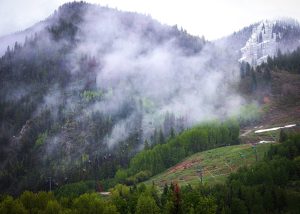Judge sides with River District in Grand County dam case
Denver Water complaint alleged breach of contract for delayed repairs
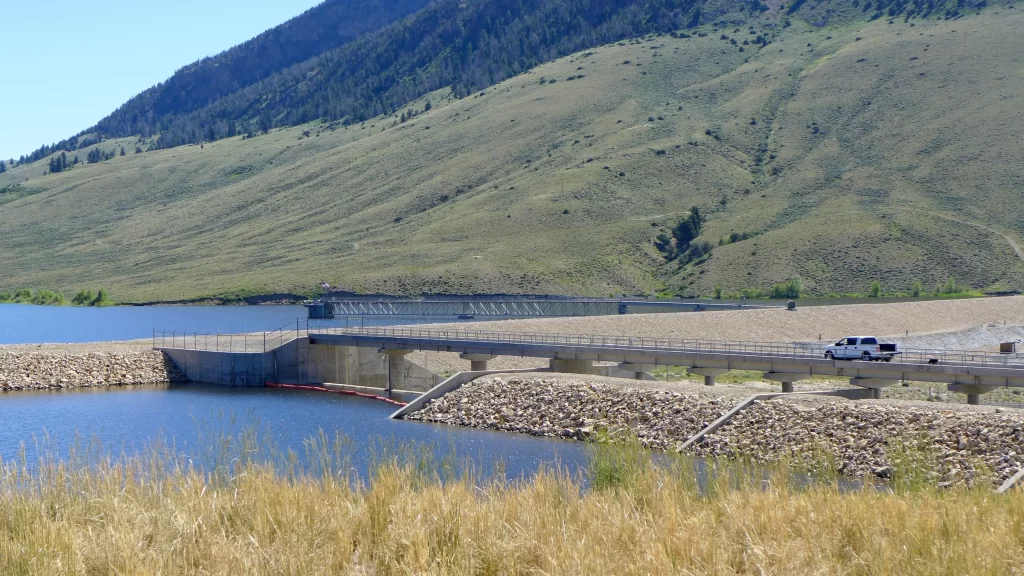
Brent Gardner-Smith/Aspen Journalism
A judge has sided with a Western Slope water district in a dispute with Denver Water over a problem dam in Grand County.
In its 2021 complaint, Denver Water accused the Colorado River Water Conservation District of breach of contract by slow walking required repairs to Ritschard Dam until Denver Water became part owner of the dam in 2020, at which time the Front Range water provider would share financial responsibility for repairs.
But in a June 19 judgment, District Court Judge Mary C. Hoak found in favor of the River District, writing that the River District made thoughtful, prudent and reasonable decisions with respect to repairs to Ritschard Dam, and did not act dishonestly or outside of accepted practices.
“Our partner in that reservoir turned around and sued us, in my mind, because they wanted a different contract over how the dam is managed and they wanted to weasel out of their obligation to pay for the repair and rehabilitation, should it ever be required,” said River District General Manager Andy Mueller at the River District board’s regular meeting Tuesday. “The judge saw through their smokescreen and really rewarded the district for doing the right thing.”
The River District is now asking that Denver Water pay nearly $773,000 in costs associated with the lawsuit.
In an emailed statement, Denver Water spokesperson Todd Hartman said the water provider “continue(s) to assess the ruling and consider potential next steps.”
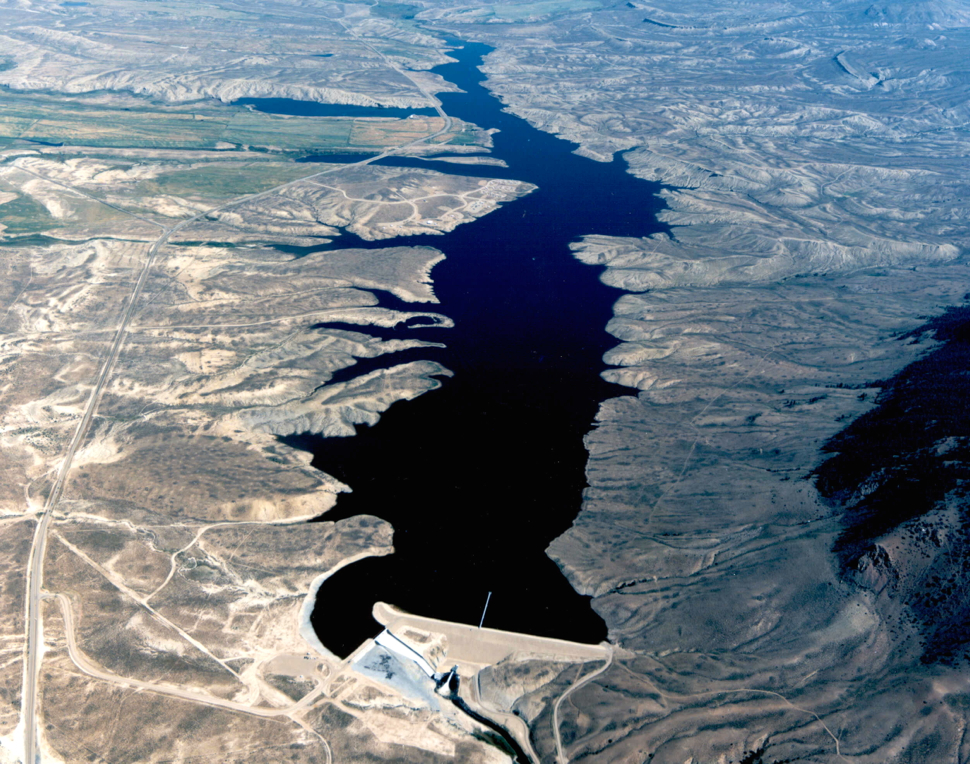
The complaint stemmed from structural issues at Ritschard Dam, which forms Wolford Mountain Reservoir on the Muddy Creek upstream of the town of Kremmling. Built in 1995, the reservoir has a capacity of 66,000 acre-feet, and Denver Water releases water from it downstream to offset its upstream diversions at Dillon Reservoir and the Roberts Tunnel. Denver Water, which is Colorado’s oldest and largest water provider serving about 1.5 million people, helped finance construction of the dam and reservoir, paying about $43 million.
The River District owns and operates the 122-foot-tall dam and reservoir, and according to agreements between the two entities, Denver Water would lease 40% of the reservoir capacity from when the reservoir was completed in 1995 until 2020. At the end of 2020, Denver Water would take 40% ownership of the reservoir capacity along with 40% ownership of the water right.
Denver Water would also become responsible for 45.33% of the costs of operation, maintenance and rehabilitation of the dam, which had been solely the River District’s financial responsibility up until that point.
Because of the disagreement, the two entities extended the lease agreement until summer 2021. At that point, according to Mueller, the River District conveyed a deed to Denver Water, which then became part owner, and the water provider has been paying for its share of the operation, maintenance and repair costs during the litigation.
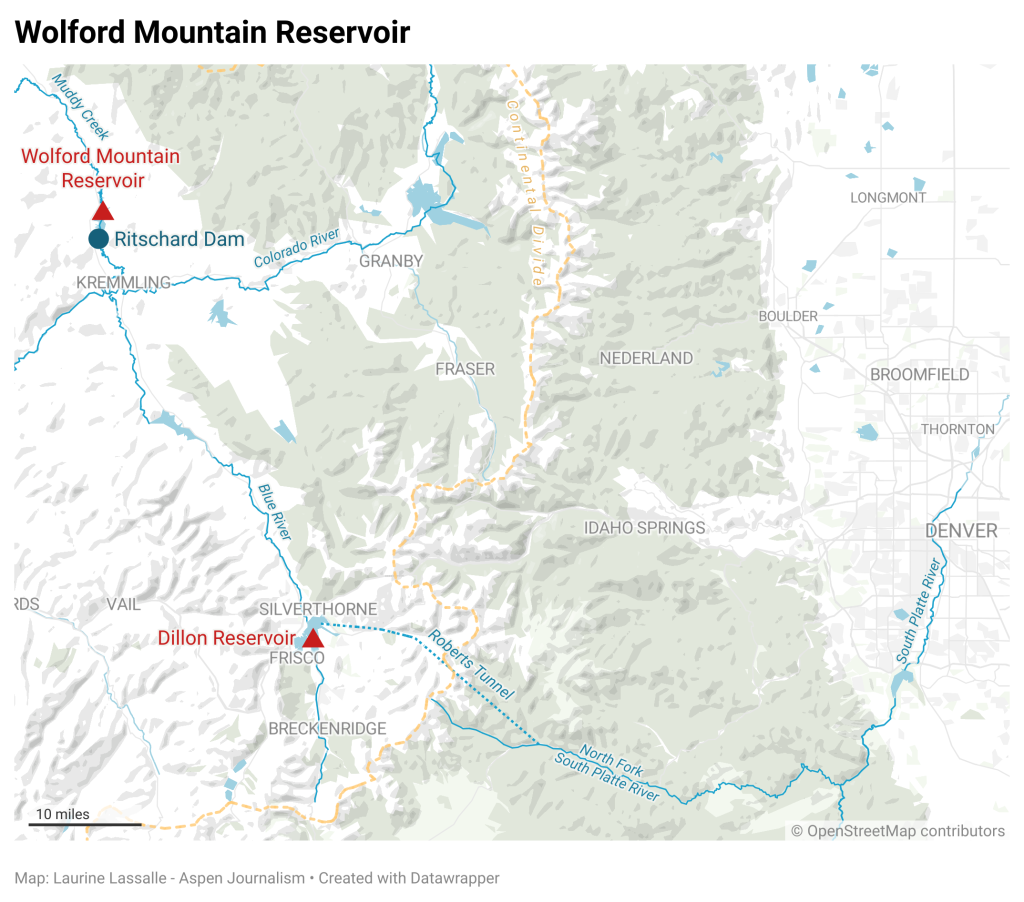
Settling and cracking
In 2009, the River District became aware of settling and deformation of the dam, meaning the structure is moving more than expected, and has been intensely monitoring the situation since then. From 2012 to 2015, the River District began moving toward structural rehabilitation, but a 2015 expert review panel found there was not a need for immediate remediation.
In 2019 and 2020, cracks appeared in the dam, prompting further study and dam safety evaluations. From 2013 to 2022, the River District spent $3.7 million on dam-related maintenance and dam-deformation expenses.
Denver Water argued the River District led Denver Water to believe that the River District would make repairs to the dam, but then changed its mind just prior to the expiration of the lease agreement, after which Denver Water would be on the hook for its share of the cost of repairs. Denver Water argued that instead of repairing the dam as required, the River District hired new experts and reversed course.
Jim Lochhead, who was Denver Water CEO from 2010 to 2023, testified at a 12-day trial in May 2024 that Denver Water didn’t know until an August 2019 meeting that the River District wasn’t going to repair the dam. But the court disagreed, citing evidence Denver Water knew of the River District’s plans as of February 2017 at the latest.
“…the Court does not find Mr. Lochhead’s testimony on this point credible,” the judgment reads. “Mr. Lochhead was the only witness that testified at trial regarding this meeting, there are no documents supporting the occurrence or substance of this meeting, and Denver Water’s Complaint, Denver Water’s Notice of Breach and discovery responses do not reference this meeting.”
In addition to expert testimony and documents, the court’s judgement relied on the annual inspection reports for Ritschard Dam from the Colorado Division of Water Resources State Engineer’s Office, which have rated the dam “conditionally satisfactory” since 2012 and never ordered a storage restriction.
“The SEO annual inspection reports were uniformly positive as to the maintenance of the dam,” the ruling reads.
“(Denver Water) had an elaborate scheme cooked up in their heads that this board and staff management, as well as the past management, concocted some way to delay things and did it in bad faith,” Mueller told the River District board. “They told a story to the court that they completely failed to support with any facts at the court level, and we won on all claims.”
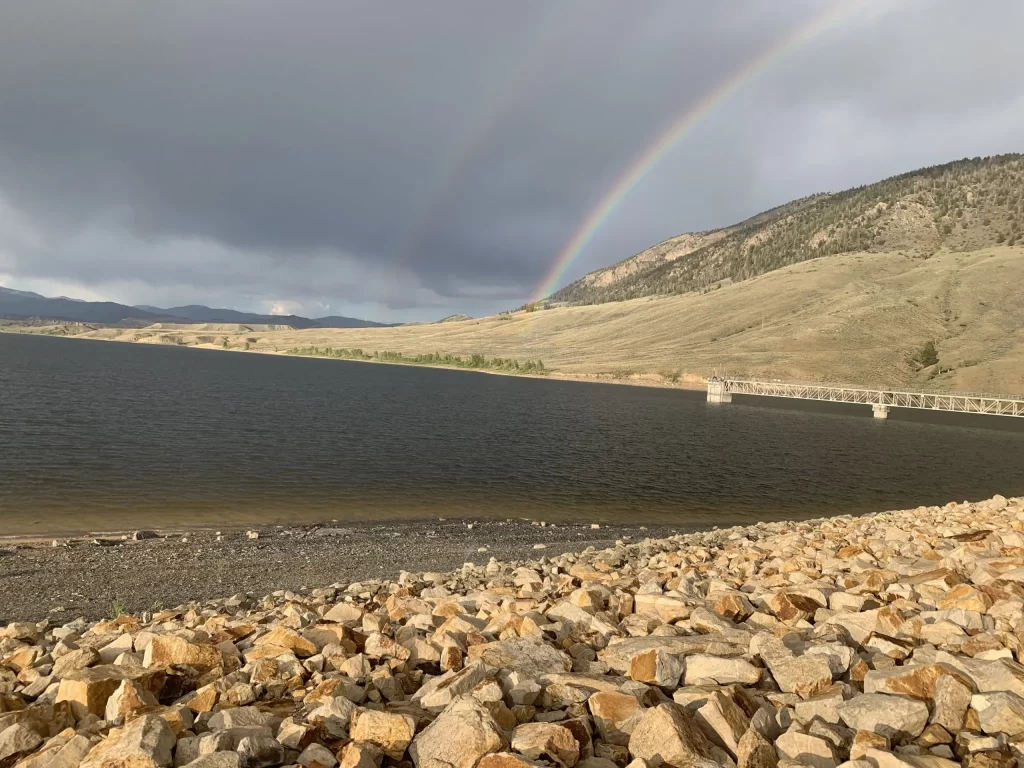
The River District win comes at a pivotal time for Colorado water managers that underscores the simmering tension that remains between the West Slope and Front Range. Denver Water, along with other Front Range water providers, has been granted a special hearing in September to air their concerns about the River District’s plan to purchase water rights tied to the Shoshone hydropower plant in Glenwood Canyon.
Although this chapter of litigation is over — Denver Water has a right to appeal — the problems with the Ritschard Dam remain. The dam is classified as high hazard, which means dam failure is expected to result in loss of human life. The River District board allocated more money to address the structural issues at its regular meeting Wednesday, approving a $294,185 contract with HDR Engineering, Inc. for an alternatives analysis to evaluate potential modifications to the dam. The alternatives analysis was recommended in a 2024 Comprehensive Dam Safety Evaluation.
“We’re not out of the woods on that dam, so we just have to continue to put public safety as the number one priority of the district, and use that as our guiding principle,” Mueller said.
Aspen Journalism is a nonprofit, investigative news organization covering water, environment, social justice and more. Visit http://aspenjournalism.org
Heather Sackett is the managing editor at Aspen Journalism and the editor and reporter on the Water Desk.
Most expensive house for sale in America hits Aspen market
The most expensive house for sale in the country hit the housing market in Aspen last week, a 74.1 acre property listed at $300,000,000.

